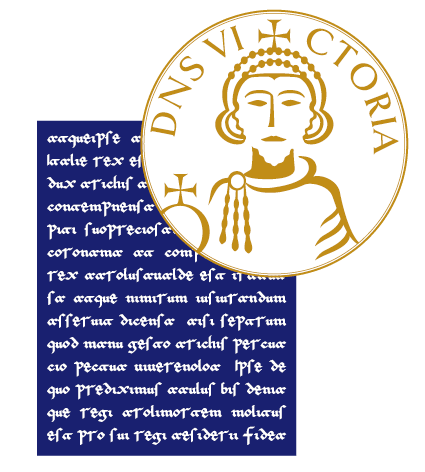University phone book

Curriculum
Francesco Napolitano – Curriculum Vitae
Università degli Studi del Sannio
82100, Benevento, Italy
📧 francesco.napolitano@unisannio.it
📞 +39 3392874067
Last update: July 31, 2024
Short Bio
Francesco Napolitano is an Associate Professor of Bioinformatics at the University of Sannio, Benevento. He has a background in Computer Science, specializing in Data Analysis and Machine Learning. His main research interests concern the application of computational models for the analysis of omics data, in particular transcriptomics, with applications to Drug Discovery and disease modeling. He has developed and published software tools for data analysis and reproducible research and is the author of 60 scientific publications.
Research Positions
Dec 2021 – Current: Associate Professor, University of Sannio, Department of Biotechnology.
Mar 2019 – Dec 2021: Research Scientist, King Abdullah University of Science and Technology (KAUST), Computational Bioscience Research Center.
Nov 2012 – Mar 2019: Senior Postdoctoral Researcher, Telethon Institute of Genetics and Medicine (TIGEM), Naples.
Apr – Oct 2012: Research Fellow, University of Salerno, Department of Computer Science.
Mar 2010 – Mar 2012: Postdoctoral Researcher, University "G. d’Annunzio" of Chieti-Pescara, Department of Medical and Biotechnological Sciences.
Education
Ph.D. in Computer Science (2009) – University of Salerno. Thesis: Fast Search in Chemical Databases using Tanimoto Similarity Bounds and Clustering Techniques.
M.Sc. in Computer Science (2006) – University of Salerno, specialization in Modeling. Thesis: An Interactive Approach to Hierarchical Clustering.
Summer Schools: 2008 – Univ. San Pablo – CEU, Madrid, Spain (Advanced Statistics and Data Mining). 2007 – University of Catania (Lipari International Summer School on Bioinformatics and Computational Biology).
Research Visits
Mar – Jun 2012: Visiting Postdoctoral Researcher, Institute of Biotechnology, University of Helsinki.
Mar – Sep 2009: Visiting Ph.D. student, Institute of Genomics and Bioinformatics, University of California, Irvine.
Fellowships and Funding
2024 - Ongoing: ZInc signal modulation in cell models of NEuRoinflammation and brain injurY- ZINERgY (Minister of University - €343,800 total).
2023 – Ongoing: Drug repositioning for Retinitis Pigmentosa by an artificial intelligence application to single-cell transcriptomics (PRIN – €97,715 to the Research Unit).
2021 – 2022: A deconfounding adversarial classifier to encode gene expression profiles for drug repurposing (KAUST – $50,000).
2019 – 2020: Deep learning methods for the identification of drugs that inhibit breast cancer stem cell proliferation by inducing differentiation (KAUST – $100,000).
2019: Computational identification of drugs that inhibit breast cancer stem cell proliferation by inducing differentiation (Fondazione Umberto Veronesi – 1 year of funding).
2012: Integration of bioinformatics data through Machine Learning and Computational Intelligence (University of Salerno).
Teaching Experience
2021 – present: University of Sannio – Professor of Bioinformatics (Bachelor's Degree in Biotechnology and Master's Degree in Biology) and Principles of Computer Science (Bachelor's Degree in Biological Sciences).
2017 – 2018: TIGEM – Lecturer of the Systems Biology and Functional Genomics course for the SEMM doctoral program.
2014: University of Bologna – Lecturer at the Summer School Chemical and genomics-based strategies in the discovery of novel drug targets.
2011: University of Salerno – Assistant Lecturer for the Computational Biology course.
2007 – 2011: University of Salerno – Tutor and Assistant Lecturer for Computer Architectures and Neural Networks.
Thesis Supervision
2023: University of Sannio, Bachelor's Degree in Bioinformatics (2 theses).
2022: University of Sannio, Bachelor's Degree in Bioinformatics; King Abdullah University of Science and Technology, Master in Computer Science.
2017: SEMM - European School of Molecular Medicine, Ph.D. in Systems Medicine.
2013: University of Naples Federico II, Master's Degree in Computer Science; University of Salerno, Master's Degree in Computer Science.
2012: University of Salerno, Master's Degree in Computer Science; University of Salerno, Bachelor's Degree in Computer Science – Artificial and Computational Intelligence.
2011: University of Salerno, Bachelor's Degree in Computer Science.
Editorial and Review Activities
Associate Editor: Journal of Translational Medicine – Medical Bioinformatics Section (from 2020), Frontiers in Artificial Intelligence (from 2022), Frontiers in Big Data (from 2022), Frontiers in Neurogenomics (from 2021).
Reviewer for scientific journals: Bioinformatics, Cell Systems, Journal of Cheminformatics, npj Systems Biology and Applications, Scientific Reports, PLOS One, BMC Bioinformatics, Drug Discovery Today, Hepatology, Molecular Biosystems, IEEE Transactions on Cybernetics, Neural Computing and Applications, etc.
Review of research projects: 2017-2018: Netherlands Organisation for Scientific Research; 2017-2018: Innovation and Technology Commission (Hong Kong).
Invited Talks
2018: King Abdullah University of Science and Technology (KAUST), Saudi Arabia. Black- and white-box approaches to omics data analysis in Drug Discovery.
2017: International School for Advanced Studies (SISSA), Trieste, Italy. Comparative Transcriptomics - pushing Data Analysis towards explaining rather than predicting cellular mechanisms.
2016: Microsoft Research & University of Trento - COSBI, Rovereto, Italy. Transcriptomic Tools for Drug Repositioning and Biological Investigation.
2015: Senate of the Italian Republic, Rome, Italy. New technologies in research on rare diseases (Public conference on orphan diseases).
2014: Italian Association of Neuroimmunology, Bergamo, Italy. Drug repositioning strategies: selection of candidates via Machine Learning.
Conference Organization
2024: Computational Intelligence for Bioinformatics and Biostatistics (CIBB), General Chair.
2010, 2011: Erasmus School in Microarray Data Analysis, Local organizing committee.
Scientific Software Development
-
gep2pep: R package (Bioconductor) for the analysis of gene expression profiles based on pathways.
-
repo: R package (CRAN) for the management of bioinformatics pipelines.
-
pyLeaf: Python package (PyPI) for the definition of ASCII-art graphs for data flow analysis.
